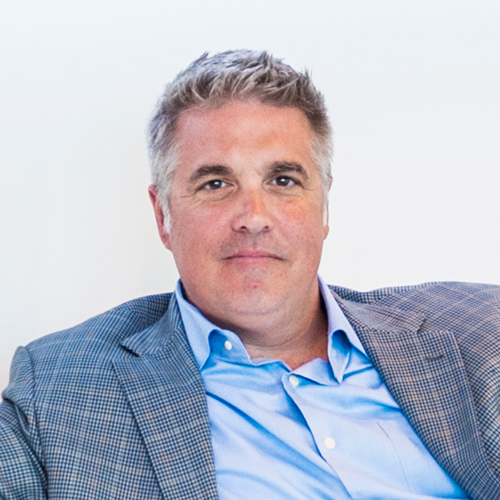The 2016 presidential election has been called many things by many people. Some have called it a choice and an opportunity. Others have called it a joke, a fiasco, and a farce. One newspaper columnist, Charles M. Blow of the New York Times, likened it to the “election from hell.” Perhaps its most common appellation has been that of circus. And in many respects, that makes Javier Palomarez a lion tamer.
As president and CEO of the United States Hispanic Chamber of Commerce (USHCC), Palomarez represents one of America’s largest and most influential voting blocs: Hispanic business owners, who now constitute 4.1 million Hispanic-owned enterprises contributing $661 billion to the US economy every year. That, plus the fact that a young Latino reaches voting age every 30 seconds in the United States, gives Palomarez a pivotal role in the greatest show on Earth.
Like every good lion tamer, he’s leveraged his role to inform and influence the presidential candidates at every opportunity, using his vast knowledge of the economy as his whip and the importance of his constituency as the flaming hoop through which the political victor must jump on their way to the presidency.
In advance of the November election, Hispanic Executive met with Palomarez to discuss the race so far, the USHCC’s role during the 2016 primary season, and the organization’s goals in the final lap of the general election.
Hispanic Executive: Last year, in advance of the presidential primaries, the USHCC hosted its Presidential Candidate Q&A Series, during which Republican and Democratic hopefuls had a chance to discuss issues of importance to Hispanic Americans. What were your most key takeaways from this series?
Javier Palomarez: We had the privilege of sitting down with Bernie Sanders, Martin O’Malley, and Hillary Clinton on the Democratic side, and with Ted Cruz, John Kasich, and Jeb Bush on the Republican side. It really set the tone for an honest and candid dialogue with all of the campaigns moving forward. We stayed in close contact with all of them up to a point. It was eye-opening to see organizations, individuals, and candidates who were committed to their philosophy and committed to their viewpoint. We commend—and I continue to commend—all of them for sticking to their guns on the issues they believed were important, even when they didn’t agree [with our platform].
HE: Which candidates did you disagree with?
JP: Donald Trump famously backed out [of our Presidential Candidate Q&A Series] at the last minute, after having insisted that he be given an opportunity and whining over the fact that we were “ignoring him.” After meeting with him privately, as I had with all of the candidates who participated in our series, he agreed to the terms of the Q&A. We set a date, and then 48 hours before the date, he wanted to have a say in what generalists would be allowed to participate, what questions would be asked, along with a few other demands. Of course, that wasn’t the format previously agreed upon. So, we agreed to disagree, but he backed out at the last minute.
On the Democratic side, Sanders’s unwavering opinion was that we should break up all the big banks, even in light of the USHCC’s disapproval. This is something we respect and commend. It’s obviously something we can’t agree with—given the fact that the large banks he wants to break up are the institutions that provide 99 percent of the funding that our small businesses need to continue to grow, create jobs, and drive economic development—but the point is: I commend him for sticking to his convictions.
HE: Who were the candidates that most impressed you?
JP: Hillary made some great comments that were very telling. She literally said, “I will be America’s small business president,” which to me speaks volumes. She was the only one to phrase it that way and the only candidate to specifically call out small business as something that would be critical for the continued well-being of the nation. She reminded me, and everyone else in that room, that she is the daughter of an entrepreneur, and that her father’s small business provided for her and her family and their well-being. That was a message that resonated.
And though he is no longer a candidate, John Kasich is a politician I hold in very high regard. He comes from a state that doesn’t have a huge Hispanic community, but he did a great job for the small-business owner sector as governor in the state of Ohio. He grew the economy, created jobs, and supported the creation of literally tens of thousands of small businesses during his tenure. He started with a deficit that was in the billions, and he ended with a surplus that was in the billions. He serves as an example of an individual with a record that goes beyond the rhetoric; he has something substantive that he can point to and say: “This is what I’ve accomplished. I’ve been a proven leader; I’ve created jobs, I’ve removed barriers, I’ve lessened government intervention, and my leadership has led to a better economy and a better state of Ohio.”
Those were the kinds of metrics that allowed us the opportunity to endorse on the Republican side John Kasich and on the Democratic side Hillary Clinton, who both have a proven track record of working with American small businesses, understanding the challenges of American small businesses, and being able to prove and point to specific things they have done to help our small businesses grow.
HE: Now that the general election is underway, what’s your impression of the primary season that unfolded after your Q&A Series, which ultimately put Clinton and Trump at the top of their parties’ tickets?
JP: Looking back, I’m not sure at what point it turned into a circus, but it did. It turned into reality TV, with Trump continuing to double down on the hate-filled, divisive nature of his campaign. It’s disappointing, but it teaches us all a lesson. On both ends of the spectrum, a single truth emerges: many Americans feel disenfranchised. Many of them feel they have been left out of the political narrative and dialogue. On the left, we saw young people by the thousands gathering behind Sanders and coalescing. And on the right, you see Americans gathering and coalescing behind Donald Trump. Agree with them or not, this is illustrative of the fact that many Americans feel they have been left out of the conversation for too long.
HE: How can organizations like USHCC help restore Americans’ faith in government?
JP: It’s clear to us that we need to continue to find a path forward for our community and for all Americans. It’s also clear to us that economic opportunity is a way to solve some of the frustrations felt by those who feel left-out and disenfranchised. It’s amazing how much more content people are with the political system when the economy is growing and creating jobs that pay well and are safe and secure. Therein lies our role. We remain resolute in the fact that we need to continue to drive local jobs and continue to drive local economies by pushing for the continued development of all small businesses in general, and Hispanic-owned small businesses in particular.
HE: Looking ahead to November, do the candidates share in your vision?
JP: [Hispanic-owned small businesses] are part of the solution to economic woes, and as such, we insist on being part of the dialogue.
Hillary has personally assured me that we will continue to be reached out to, that we will continue to have a seat at the table, and that she will continue to personally talk to me about what her thoughts are, what her policies might be, and who her advisors will be going forward.
Likewise, we continue to hear from Trump’s team. It is rarely calm and it is rarely positive, but we continue to have discussions.
Our goal is to shape the dialogue to ensure that our people are being considered. We must ensure that our needs and concerns are being heard by all policymakers, but certainly by the two people who are looking to be the next leader of the greatest economy in the free world.
EDITOR’S NOTE: At press time, the USHCC officially endorsed Hillary Clinton for president in an historic announcement, breaking its 38-year streak of neutrality.
Policy Proposals
During the 2016 election season, the USHCC has been resolute in advocating for policy proposals in the following five subcategories of domestic policy:
1. Access to Capital: “The USHCC supports and encourages more capital investment in small businesses, reducing regulatory burdens for entrepreneurs, and facilitating the exchange of capital to invest in growth of American businesses.”
2. International Trade and Commerce: “Small businesses are one of the primary drivers of job growth in the US, but too often trade barriers lock small businesses out of important foreign markets and export opportunities.”
3. Education and Workforce Development: “We must invest in job training and work readiness programs so our young people will be better prepared for their future entry into the workforce.”
4. Immigration: “USHCC believes immigration policy must be viewed as a major component of US economic growth.”
5. Energy: “The USHCC believes that most Americans share the goal of keeping energy affordable for businesses and families while creating jobs and remaining conscious of the environment.”

